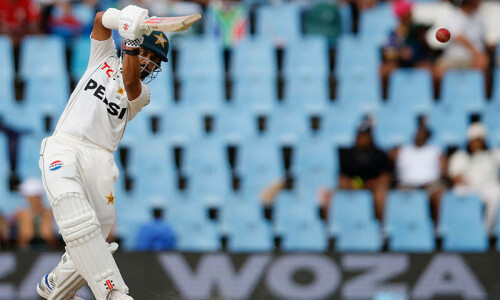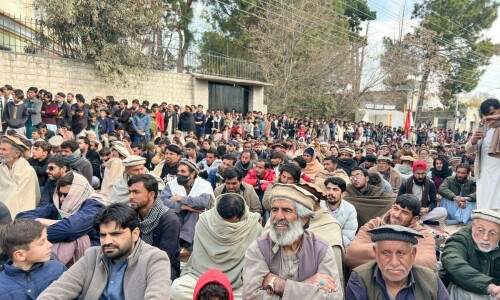FOR all practical purposes, Bangladesh is now an elected dictatorship. A year ago, Prime Minister Hasina Wajid stole the general election and then went on to consolidate her rule by crushing all dissent, wreaking vendetta on her foes and hanging opposition leaders through a judicial process condemned as flawed by world rights bodies.
On Sunday, the Bangladesh National Party’s head office was sealed and its leader, Khaleda Zia, confined to the party office for what the government called her own security.
The real reason was to crush the countrywide strike called by Ms Zia to demand a fresh election, because Ms Wajid had abolished the constitutional clause providing for a caretaker, neutral government to hold the polls.
This was a provocation to the opposition, because since 1991 general elections in Bangladesh had been held by caretaker governments.
Take a look: Civil strife in Dhaka
No wonder, the BNP and 17 other parties boycotted the polls in which Ms Wajid’s Awami League ‘won’ 153 of the National Assembly’s 300 seats because the opposition fielded no candidates.
The fraudulent majority in parliament has since then enabled the ruling AL to persecute the opposition.
The most blatant form of the government’s use of courts to destroy all dissent is to be seen in the flawed trials of many opposition leaders, especially those belonging to the Jamaat-i-Islami, which has for long been waging a campaign against the AL government.
Also read: Bangladesh court rules Jamaat illegal, bars party from polls
Several JI leaders have been hanged for their alleged war crimes during the 1971 insurgency, and many more leaders, including those belonging to the BNP, are on trial.
The BNP-led strike may not lead to a fresh election, but the violence seen on Monday could snowball and throw Bangladesh into anarchy.
Persecution of the opposition and judicial farce are not what Bangladesh needs. The rivalry between the two leaders and periodic strikes have done enormous harm to Bangladesh’s fledgling democracy and have hurt its economy.
What the country needs is national reconciliation and peace to consolidate democracy and speed up economic development.
Published in Dawn, January 6th, 2015
On a mobile phone? Get the Dawn Mobile App: Apple Store | Google Play












































